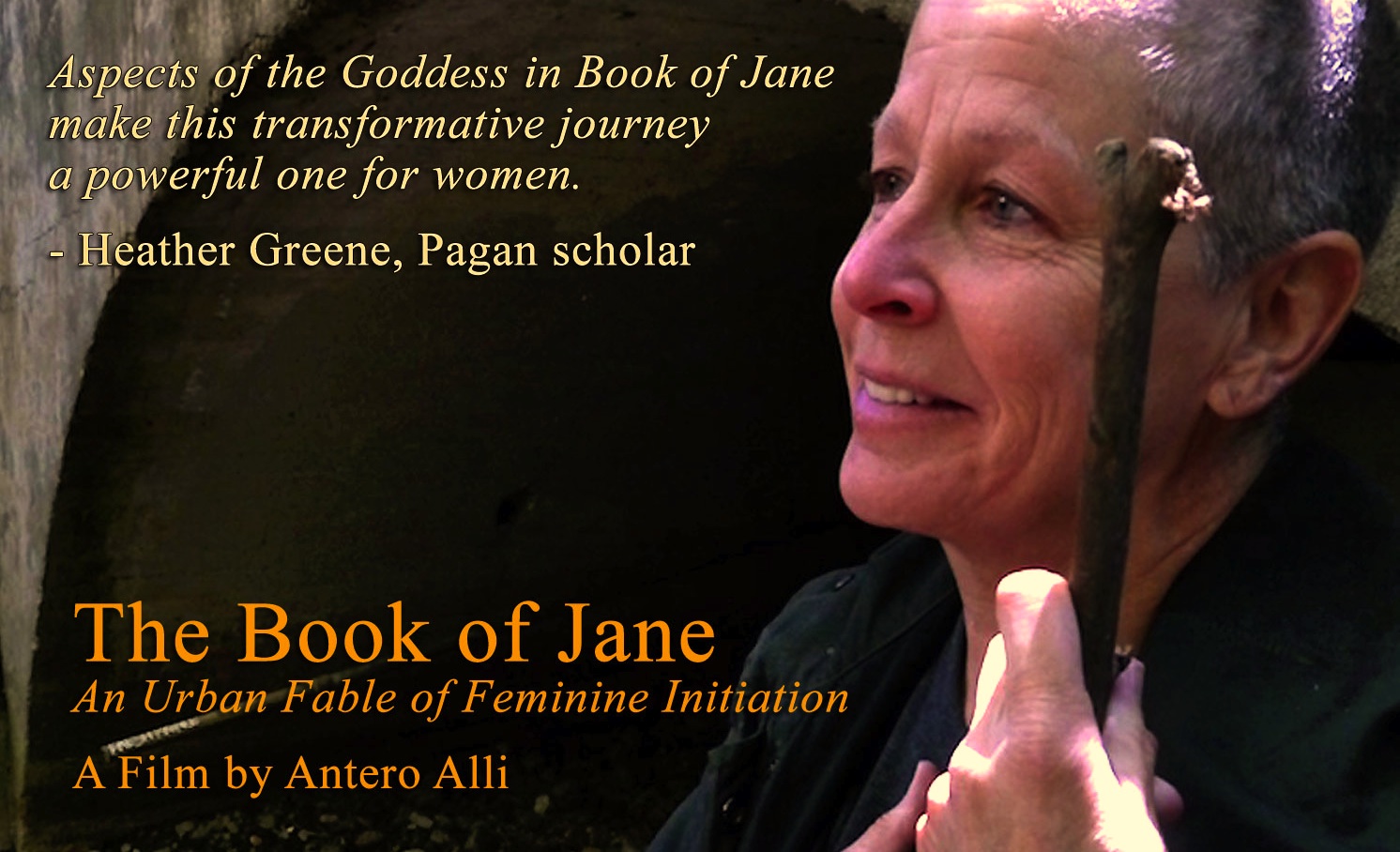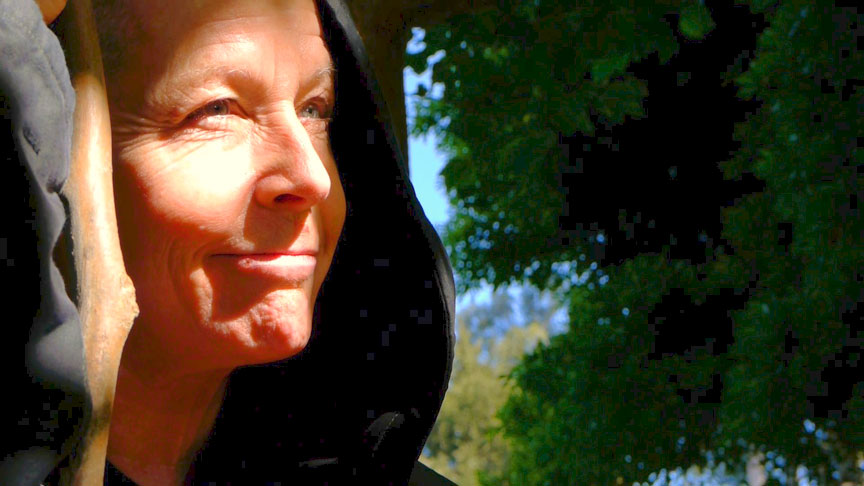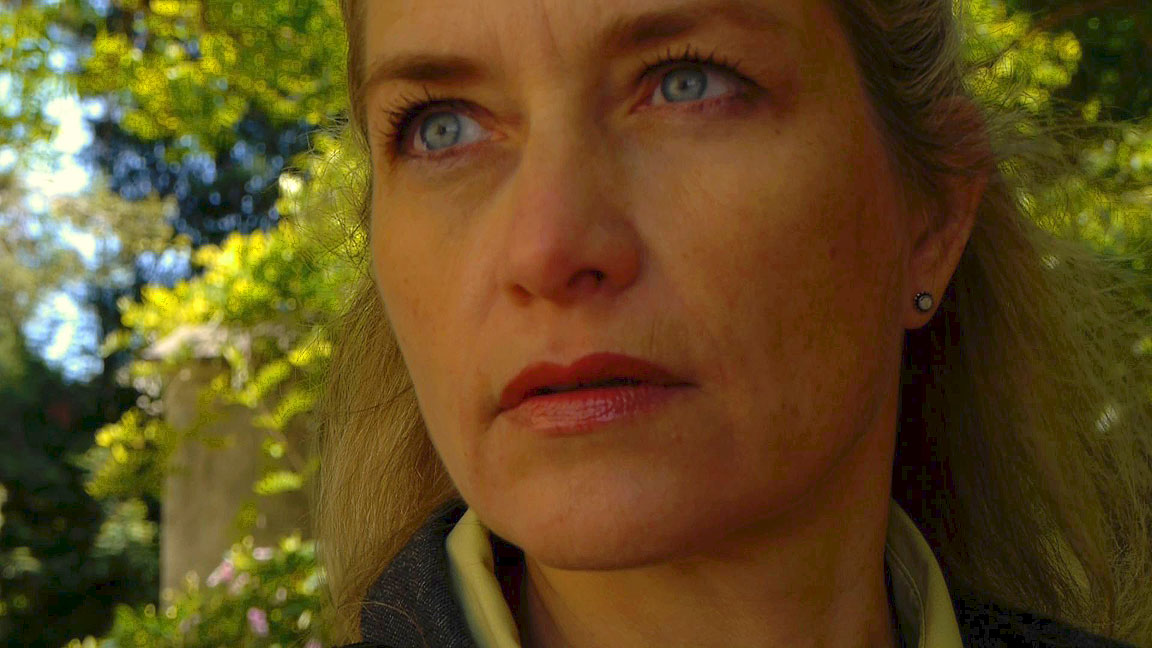
Film Review by Phil Hall
(5 stars) for filmthreat.com
THE BOOK OF JANE (2013; 117 min. USA)
Underground filmmaker Antero Alli has created a new feature that touches on subjects that have been part of his prolific canon – transformative rituals, overcoming communication barriers, self-empowerment by means of a reinvented identity – and presents them in a bold and often challenging new drama that raises the cerebral level of filmmaking substantially.
The film focuses on the unlikely intersection of two women: Alice, a somewhat brittle professor of comparative religion, and Jane, a warm yet enigmatic elderly homeless woman. Much to Alice’s surprise, Jane is an expert on the subject of Alice’s proposed book project on goddess mythologies in the pre-Hellenic era. But whereas Alice approaches her subject from a rather haughty academic consideration, Jane appears to be passionately living the subject – declaring herself a “student of the invisible college,” she can hear messages within the stray feathers fallen from a crow while her dreams connect her with the figure of the Morrigan, the ancient Irish goddess.
At first, Jane seems to get the better of Alice in a battle of wits. Declaring herself to be “nomadic” rather than homeless, she tells Alice: “You’re homeless – you just don’t know it yet.” But both women are highly vulnerable – Jane scrounges for food in dumpsters, sleeps under a bridge and speaks at length to a doll that may symbolize the spirit of her lost child, while Alice is in a relationship with a female artist who, at first impression, does not appear to be her intellectual soul mate.
“The Book of Jane” challenges the notion of the goddess as a figure deserving of awe and respect. Jane and Alice rue the Western monotheistic religions and their exultation of a male figure as the central god, but their personal examples offer little clue of the female wisdom and superiority they advocate. Alice is the queen of a tiny domain – an academic setting where she is abrupt and rude to her struggling students – while Jane’s homeless state makes her all but invisible to the wider world. Outside of her contact with Alice and a brief hospital stay, no one would even know that Jane walked among them.
The concepts raised in “The Book of Jane” are profound and often complex, and Alli’s screenplay is rich with dialogue that clearly requires a great deal of concentration in order to absorb the many points being raised. (More than one screening will help the viewer capture every point that is being put forth.)


Luna Olcott as "Jane" and Marianne Shine as "Alice"
Of course, one needs great actors to take such a rich vision forward, and the central performances by Luna Olcott as Jane and Marianne Shine as Alice are astonishing. The women brilliantly absorb the idiosyncratic failings and triumphs of their respective characters, resulting in a pair of in-depth creations that resonate with a myriad of emotions. I really don’t care who wins this year’s Best Actress Oscar, because no Hollywood star could possibly top the work of Olcott and Shine.
Also worth noting in the film is the hypnotic dream sequence featuring the graceful Morpheus Ravenna as the dream-based Morrigan. Sylvi Alli, one of the musical talents behind the film’s score and wife of the director, turns up in a delightful guest role as a busker who performs a tune that pays tribute to idiots.
“The Book of Jane” provides evidence of the artistic and intellectual power that can be generated through underground filmmaking. It is also one of Alli’s crowning achievements.
Five stars (out of five)
BACK TO "THE BOOK OF JANE"